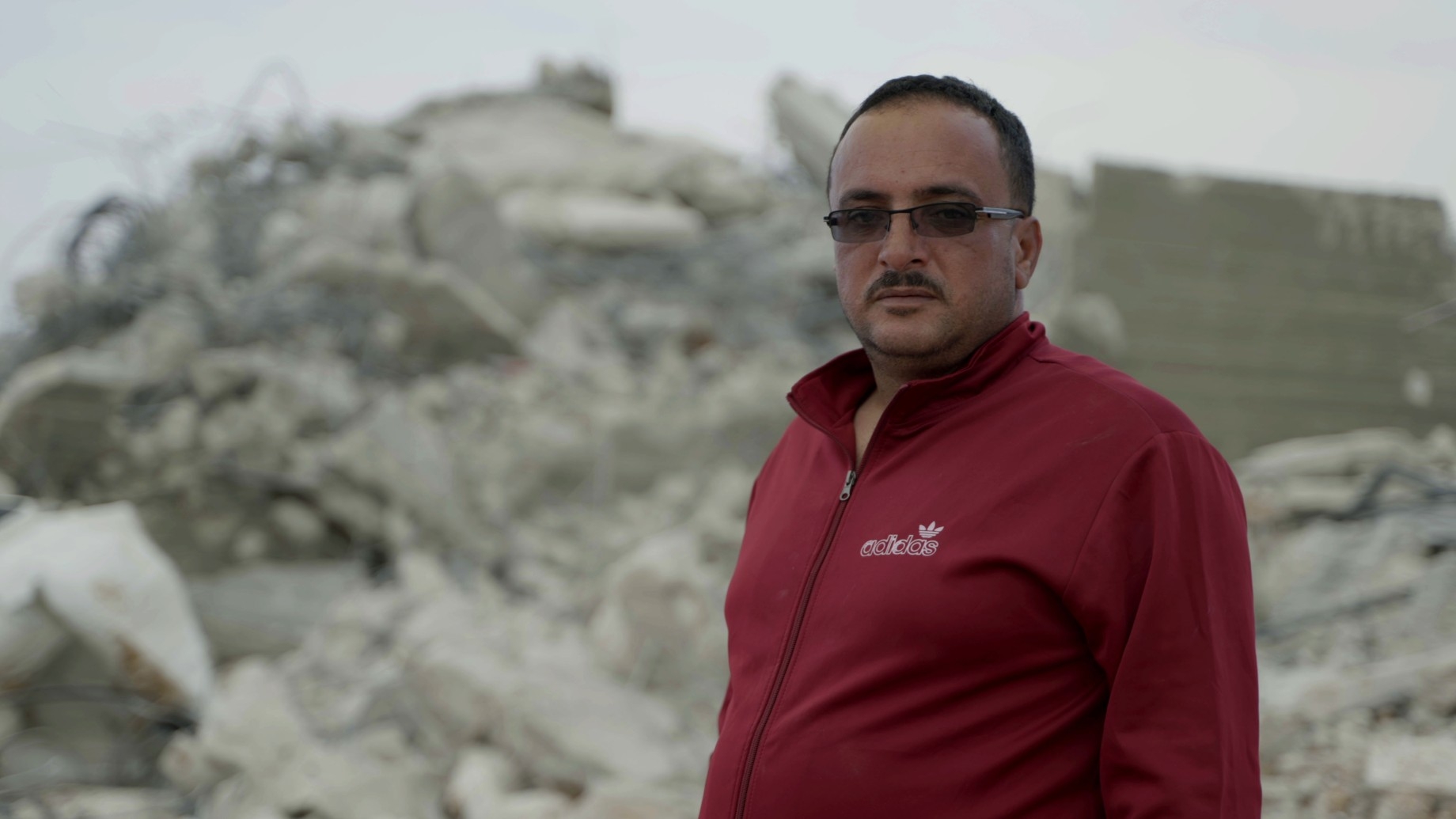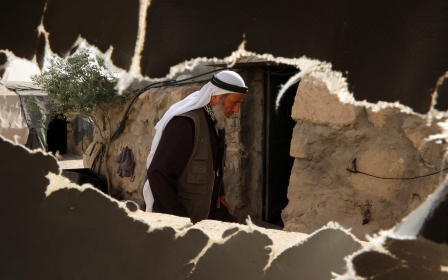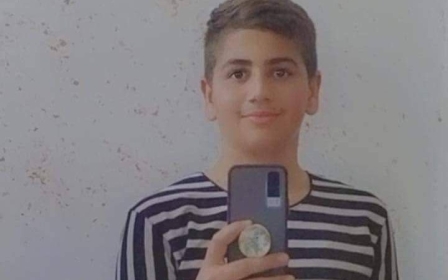'All we could do was watch': Israeli army demolishes six family homes in occupied West Bank

Rashid Kawazba, 41, and his brothers were excitedly awaiting the day the electrical company would turn on the electricity, so they could move into their new homes, which they built neighbouring each other in the Al-Maniya village, southeast of Bethlehem.
However, the 25 family members never got to experience their first night in the three adjacent three-storey buildings.
'I can't even describe how I felt; I almost wish I didn't see the demolition. I felt defeated'
- Rashid Kawazba
At around 5am on Monday morning, Israeli army forces raided the village and surrounded the Kawazba family homes. They had brought several bulldozers along with them.
"While I was on my way to work, my family called to tell me that dozens of Israeli soldiers accompanied by bulldozers and military jeeps were raiding the neighbourhood," Kawazba told Middle East Eye, standing near the ruins of what was to be his new home.
Kawazba said that the military shut down the entire neighbourhood, and began demolishing the buildings almost immediately.
New MEE newsletter: Jerusalem Dispatch
Sign up to get the latest insights and analysis on Israel-Palestine, alongside Turkey Unpacked and other MEE newsletters
"All we could do was watch. I can't even describe how I felt; I almost wish I didn't see the demolition. I felt defeated. Everything my brothers and I worked for was gone instantly," he recounted.
"We were already picturing our lives in those houses, we couldn't wait to move in, but the Israelis came and destroyed everything. They didn't even let us take anything out of the house,” he said.
"They killed our dream. Everything I did and all the money I paid was for nothing.”
Asked to pay for cost of demolition
Last year, the family received a letter from the Israeli Civil Administration, which enforces home demolitions in the occupied West Bank, stating its plan to demolish their homes within 96 hours. The family immediately hired a lawyer to appeal the case.
The appeal had been moving through the courts for months, and the family’s lawyer had told them things were going well, but there were no new decisions or developments recently. That’s why Kawazba said he was shocked to see the army at his doorstep Monday morning.
'It's ridiculous that now they are demanding we pay for demolishing our house. If we refuse, we have no idea what they will do'
- Rashid Kawazba
"The military appeared out of nowhere, with no notice, and demolished our house,” he said.
Kawazba told MEE that after the demolition, Israeli army officials gave the families a ticket to pay Israeli authorities for the cost of demolition, approximately $18,000.
“It's ridiculous that now they are demanding we pay for demolishing our house. If we refuse, we have no idea what they will do,” Kawazba said.
"And it doesn't stop there," he continued, explaining how much money they have already put into constructing these buildings.
"I have to pay even more money for something that we can't even live in," he said, going on to explain that the total cost of the construction was about $730,000, and he was still in debt for about $292,000.
"Financially, this is terrible. I have lost a lot of money in construction. My brothers and I must continue working for the next two years to pay off a debt for houses that no longer exist and we never got to live in."
Palestinians banned, settlers allowed
The Kawazba family homes are located in Area C of the West Bank, which makes up more than 60 percent of the territory. Area C is under full Israeli security and civilian control; as a result, Palestinians who live there are required by Israeli military law to receive permission from Israel’s Civil Administration in order to build, even if the land is privately owned.
The Civil Administration, however, rarely approves Palestinian building permit applications, forcing many people to build on their land without permission, thus subjecting them to home demolition.
During the first eight months of 2022, 590 Palestinian-owned structures across the West Bank and East Jerusalem were demolished or seized, displacing 707 people.
Kawazba said he tried to get permission from the Israeli Civil Administration, giving them “everything they asked for” throughout the application process. But the family’s applications were still denied, affirming his belief that “Israel doesn't want any Palestinians to have land and houses.”
He also told MEE about a nearby settlement that cuts into land owned by the Palestinian village, "We cannot build on our land, but the Israeli settlement three or four kilometres away can build on our land.”
Middle East Eye delivers independent and unrivalled coverage and analysis of the Middle East, North Africa and beyond. To learn more about republishing this content and the associated fees, please fill out this form. More about MEE can be found here.




